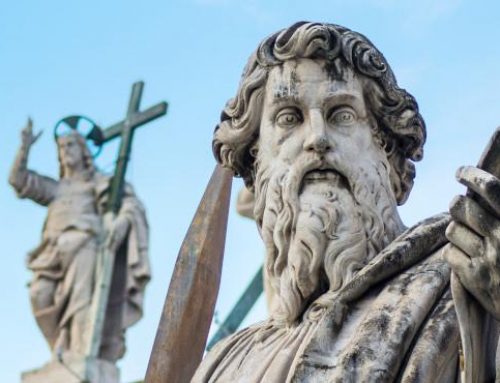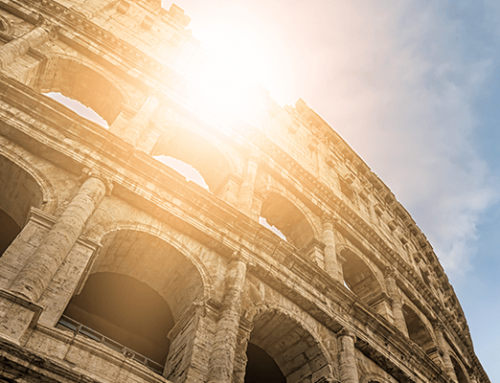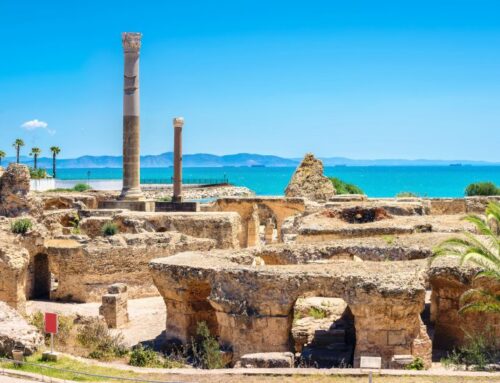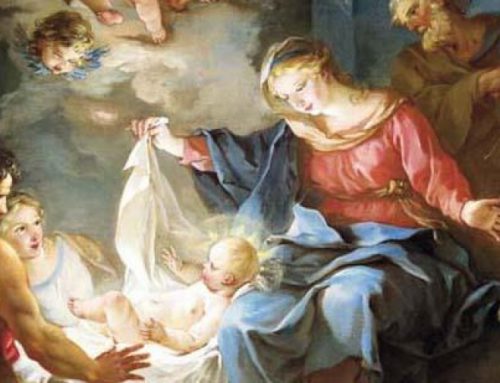On the 50th anniversary of Paul VI’s audience with the gypsy community, Pope Francis urged Roma and Sinti people to stay out of fraudulent activities and send their children to school. He condemned the lighting of pyres and the cold that cause children to die in travellers’ camps
On the 50th anniversary of Paul VI’s audience with the gypsy community, Pope Francis urged Roma and Sinti people to stay out of fraudulent activities and send their children to school. He condemned the lighting of pyres and the cold that cause children to die in travellers’ camps
“It’s time for change! The time has come to put an end to age-old prejudices, preconceptions and mutual mistrust which are often the cause of discrimination, racism and xenophobia.” The Pope addressed these words to the gypsy community during an audience with them on the occasion of their pilgrimage to Rome to mark the 50th anniversary of the first audience granted to Roma and Sinti people by Pope Paul VI. Francis received a fervent welcome from a crowd of over 7000 people gathered in the Paul VI Hall. He urged gypsies to avoid “falsity, fraud, cons and fights”, encouraged them to send their children to school and called for an end to “family tragedies involving children dying of cold or burnt to death”.
“Dear gypsy friends, o Del si tumentsa!” Francis said, using the Romani expression for “the Lord be with you”, attracting waves of applause. “I know about the difficulties your people are going through. Having visited some Roman parishes on the outskirts of the city, I was able to listen to your problems, your concerns and I noticed that they do not only require the Church’s action but also the action of the local authorities. I was able to witness the precarious conditions in which many of you live, as a result of neglect and unemployment and the necessary means of subsistence.
This goes against every person’s right to a dignified life, dignified work, education and healthcare. According to the moral and social order, every human being should be able to enjoy their fundamental rights and respond to their duties as individuals. Peaceful co-existence can be built on this basis and would allow different cultures and traditions to preserve their respective values, not by adopting a closed or confrontational attitude, but an attitude of dialogue and inclusion instead. We no longer wish to witness family tragedies in which children die of cold or are burnt alive, or they become objects in the hands of deprived people, young people and women are involved in drugs trafficking or human trafficking. And this is because we often become indifferent and unable to accept customs and ways of life that are different from ours. I would like your people to start a new chapter too, to turn the page! The time has come to put an end to age-old prejudices, preconceptions and mutual mistrust which are often the cause of discrimination, racism and xenophobia,” Francis continued amid applause. “No one must feel isolated and no one has the right to trample over the dignity and rights of others. The spirit of mercy calls us to fight for the defence of these values. Let us allow the Gospel of mercy to shake our consciences and let us open our hearts and our arms to the needy and the marginalised, starting by those who are closest to us.”
“In today’s cities, where there is so much individualism, I call on you first and foremost to work at building peripheries that are more human, fraternal bonds and the spirit of sharing; you have this responsibility, it is your responsibility too. You can do this above all if you are good Christians, steering clear from anything that is not worthy of this name: falsity, fraud, cons, fights. You have the example of the Blessed Zeffirino Giménez Malla, one of your own,” the Pope said amid more applause, “who distinguished himself because of his virtues, his humility and his honesty, as well as because of his deep devotion to the Virgin Mary, a devotion that led him to become a martyr and to become known as the “Martyr of the Rosary”. I present him to you again, as a model of life and religious faith, also because of the cultural and ethnic ties that bind you to him. Dear friends, do not give the media and public opinion reason to speak ill of you. You yourselves are the protagonists of your present and of your future. Like all other citizens, you can contribute to the wellbeing and progress of society, respecting its laws, fulfilling your duties and integrating yourselves, also through the emancipation of the new generations”.
Pointing to the many children present in the crowd, Francis underlined that children are “the most precious treasure” of the gypsy culture: “Education is definitely the basis for the healthy development of the individual. It is a well known fact that the low level of schooling among many of your young, represents the greatest obstacle for accessing the world of work. Your children have the right to go to school, do not prevent them from doing so! The encouragement for children to pursue higher levels of education needs to come from the family, the parents and the grandparents; adults have the task of ensuring that young people go to school. Access to education allows your young to become active citizens, to participate in the political, social and economic sphere in a given country. Civil institutions are called upon to guarantee adequate training for young gypsies, giving families facing tougher living conditions the chance to benefit from greater inclusion in schools and in the workplace. The integration process presents society with the challenge of getting to know the culture, history and values of the gypsy populations. Everyone should get to know about your culture and values!” the Pope said. Francis also recalled that there has been a rise in the number of vocations to the priesthood, the diaconate and consecrated life. He gave a special mention to Bishop Devprasad Ganava.
-
gypsy pilgrimage was organised by the Pontifical Council for the Pastoral Care of Migrants and Itinerant People in collaboration with the Italian Episcopal Conferences’ Migrantes foundation, the Migrantes office of the diocese of Rome and the Community of Sant’Egidio, to commemorate the 50th anniversary of the Blessed Paul VI’s historic visit to the travellers’ camp in Pomezia, Italy, on 26 September 1965.
“Many of them,” said Cardinal Antonio Maria Vegliò in his introduction, “live on the outskirts of the city, sometimes in a state of degradation, many elderly and young people, fathers and mothers have never received an education or professional training and do not have a job, but all of them want to ensure a better future for their children. Unfortunately, there are those among them who turn to illegal activities to ensure a dignified standard of life, sad stories about aggressive behaviour, robberies and muggings often fill the media, conjuring feelings of rejection among other members of the population and causing embarrassment to those gypsies who are already integrated in society.”
Echoing Montini, the Pope said: “In the Church you are not on the margins, but in some aspects at the centre, you are right at the heart. You are in the heart of the Church.” The gypsies greeted the Pope at the start and end of the audience with great waves of enthusiasm, touching him and sometimes almost tugging at him for a blessing, presenting him with crucifixes, statuettes, rosaries and sacred objects for him to bless, calling him to have his photo taken with them, hugging him and handing young children over to him to kiss and bless. Among those who took the floor at the start of the audience, was a Sinti member of the Slovak parliament, a Romani mother who asked Francis to baptise her children , a group of Romani children from Mazara del Vallo who sang in chorus and Spanish singer María José Santiago, who said to the Pope: “España le quiere mucho!” (“Spain love you very much!”). Francis concluded the audience by placing a crown on a statue of the Virgin Mary of the gypsy people.







Leave A Comment
You must be logged in to post a comment.